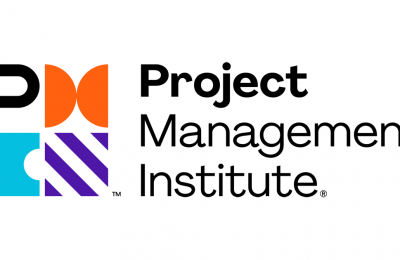The 36 State Governors have reeled out various intervention programmes and policies geared toward tackling lingering food crises and economic hardship across the country.
Details of the intervention programmes and policies were contained in a report released by the Nigeria Governors Forum (NGF) and made available to Journalists on Sunday.
According to a statement signed by NGF Acting Head of Media, Halimah Salihu Ahmed said that the Governors have taken several proactive steps to counter the present food crisis as well as the inherent economic hardships.

“In Akwa Ibom State, the government is planning to establish an agency which will buy food items in bulk and then sell them at cheaper prices to the residents.
“Towards this end, the Akwa Ibom State Governor, Umo Eno, has forwarded to the House of Assembly a bill for the establishment of the agency.”
Quoting the spokesman of the Akwa Ibom State Governor, Ekerete Udoh confirmed that Governor Eno has promised to sign the bill into law when it is passed by the Assembly.
“We will buy the food items in bulk and ensure that they are made available to our people at relatively lower prices. The process will be transparent. I want to thank the House of Assembly for the expeditious manner this Bill is being treated. I want to assure our people that we feel their pain and are working hard to ensure that food security for our people is guaranteed.”

The Forum also applauded Kano State authorities over its decision to crackdown on warehouses where traders are suspected of hoarding food supplies.
“In Yobe State Government banned bulk purchases of grain from local markets to stop hoarding and exports across Nigeria’s borders,” saying it was to “stem the tide of food scarcity and high cost of grains.
“In Niger State Governor Mohammed Umar Bago announced a ban on the mass purchase of foodstuffs from local markets. He ordered security forces to confiscate trucks carrying products in bulk and “share the food with the people”.
“In Enugu State, Governor Peter Mbah said his administration will eradicate hunger and poverty in the state and unlock the rural economy through investment in agriculture and agro-industrialisation.
Governor Mbah, who was represented by the secretary to the state government, Professor Chidiebere Onyia during the celebration of the 2023 World Food Day in Enugu assured that the “State Government was intensifying efforts to grow the economy of the state from $4.4 billion to $30 billion through massive investment in agriculture by attracting investors, empowering the farmers and opening the rural economy of the state.
“As Governor’s firmly respond to the multiple consequences of a food crisis, for the masses, it may just be morning yet on creation day,” the report stated.
Also, the Ekiti State Government said that it has committed the sum of N1 billion to improve food production, especially to embark on land preparation, driven by the Ministry of Agriculture and Food Security’s tractorisation subsidy scheme, and an input supply programme to support small-scale farmers.
Similarly, Ekiti State Government is also committing a whopping sum of N1.2 billion it recently got as first tranche of the World Bank-financed Livestock Productivity and Resilience Support ( L-PRES) Project to transform the livestock subsector.
According to the NGF report, the money would be spent on empowering livestock farmers, boosting livestock productivity as well as creating a conducive environment for youths and private sector involvement in livestock businesses.
These include: revamping all veterinary clinics across the local government areas and the state veterinary hospital; developing of poultry sector across the value chain from production to processing; Feeding formulation and artificial insemination (Al) training and support, among others.
In Zamfara state, last week, Governor Dauda Lawal hosted the Sweden Ambassador, Annika Hahn-Englund, on partnership on how to grow the state economy, address the current hardships as well as create collaboration and partnership in critical areas of the economy, build long-term relationships, and implement transformative projects for the benefit Zamfara State and its people.
“At the meeting, Governor Lawal assured the Swedish Ambassador of his administration’s readiness to promote collaboration and sustainable development across various sectors.
“Sweden has expressed interest in partnering with Zamfara State to build long-term relationships and implement transformative projects for the state’s people in Nigeria.”
In his remarks, Governor Abdulrahman Abdulrazaq explained that the Anchor Borrowers Programme that was previously implemented by the Central Bank of Nigeria did not achieve much.
He therefore called on the Minister of Agriculture to work hard to meet the food targets of government, as this was vital for the Nigerian masses, adding that state governors would work with the ministry.
“We could not achieve much with the CBN Anchor Borrowers programme; it was very challenging. The issue of food security is a one-stop-shop and we need to concentrate on what we are doing. We need to concentrate on what we are doing for the dry season farming.
“The Minister has come up with a programme on cassava, rice, and maize and we want to engage in that programme and urgently make sure we improve on our yield and deliver to the Nigerian population.
“We want to get to a stage where we export our food. What we have now is that, because of the devaluation of our naira, Nigeria’s food is being exported to West Africa and is the cheapest in the region today.”
He explained that the Governors had “come to the realisation that we have a new Ministry of Agriculture, because over the last four years, before this administration, the engagement was not too productive.
“This was because the CBN took over most of what the agriculture ministry use to do. Our trips to the ministry at that time were not fruitful. But now we have seen strong engagement and sense from the Federal Ministry of Agriculture and that is why we are here today,” he stressed.
Governor Abdulrazaq also said the Governors had also noted that food in Nigeria was the cheapest in West Africa, adding that Nigeria’s neighbours were using its food to trade.
As a result, the NGF chairman said: “They are taking our soya and other stuff to make foreign exchange for themselves. That is not a bad thing. What we need to do is ramp up production and increase our yields per hectare so that we can feed West Africa, feed ourselves 100 per cent and export food. That is the goal we must achieve…. whatever subsidy that is coming from the federal government will be improved upon by the States.”







